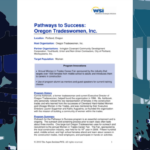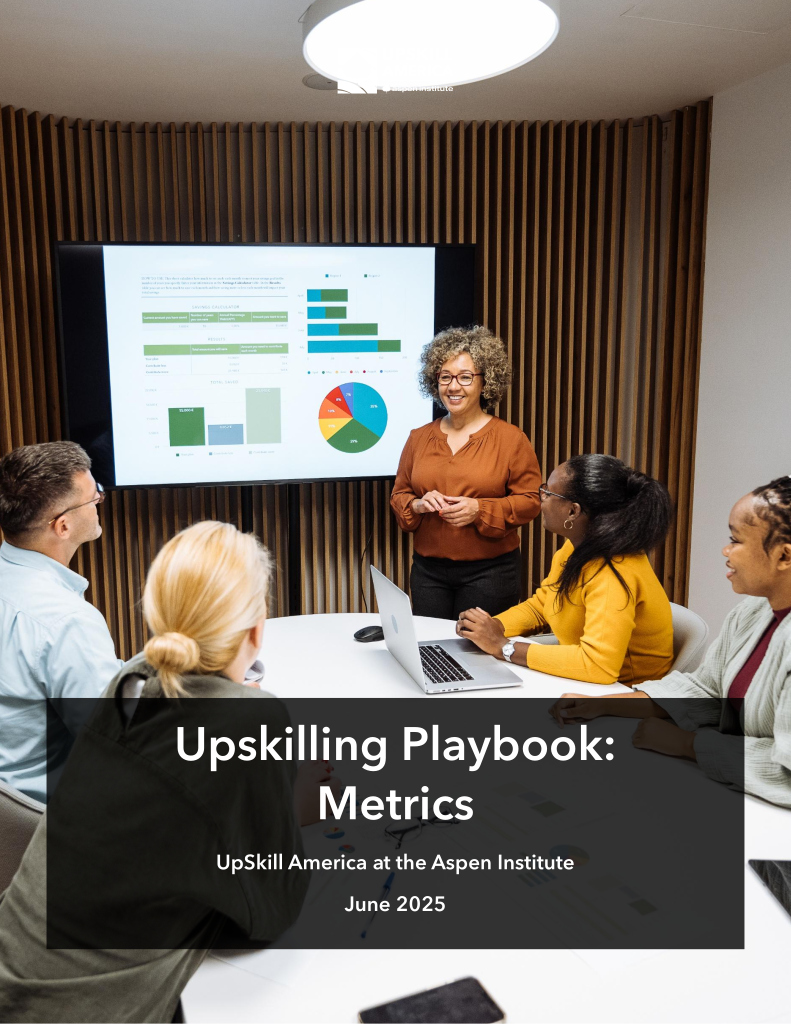As we celebrate Women’s History Month, we draw inspiration from trailblazers like Frances Perkins, the US secretary of labor during Franklin D. Roosevelt’s presidency, whose advocacy reshaped American workers’ rights. Yet, as we honor her legacy, we’re reminded of the ongoing struggle for workplace equity faced by women, particularly women of color. Occupations that are dominated by women, such as those in health care or childcare, often have low pay and other job quality challenges. At the same time, women still face systemic barriers to entry in occupations considered “nontraditional” for women, like in the construction industry.
In navigating these challenges, we invite you to explore case studies, articles, and interviews that illuminate the evolving landscape of women’s work experiences. From the evolution of traditional caregiving roles to the need for a post-pandemic care economy, the work of the Aspen Institute Economic Opportunities Program work seeks to ignite conversations and inspire action to realize inclusive and fair job opportunities for all.
 Charting the Evolution of “Traditional” Work
Charting the Evolution of “Traditional” Work
This case study outlines Cooperative Home Care Associates’ (CHCA) evolution in the home health industry since its inception in 1985. Initially launched to uplift home health aides and provide jobs for low-income women, CHCA saw changes in recruitment dynamics due to shifting welfare policies and regulatory constraints. This led to a decreased proportion of welfare-to-work applicants. Instead, the majority of recruits became unemployed women seeking stable employment amidst regulatory challenges.
Care Work in the Headlines
In this New York Times article, Stefanos Chen discusses the inhumane working conditions of home care aides, exemplified by Lai Yee Chen’s 24-hour shifts. He highlights the push in New York City to ban such shifts due to the growing elderly population and the strain on workers’ well-being and safety.
Building a Post-Pandemic Care Economy
In this clip from our event on valuing care, Tina Tchen, former CEO of Time’s Up, discusses the urgent need for a comprehensive caregiving infrastructure to support women, people of color, LGBTQ+, and disabled workers in safe and equitable workplaces. Highlighting the disproportionate impact of the pandemic on women and the lack of national policies like paid leave, she emphasizes the importance of investing in caregiving options and creating supportive environments for all workers. Watch the full recording to learn the important role of caregiving in our society and hear a variety of ideas for building an equitable care economy.
Paving the Way for “Nontraditional” Work
Bridging the gender gap necessitates comprehensive efforts to dismantle barriers and foster inclusive environments. And this is particularly true when it comes to creating opportunities in traditionally male-dominated fields like construction, where systemic sexism persists as a significant obstacle. Organizations like Oregon Tradeswomen, Inc., are tackling this challenge head-on through initiatives like their construction pre-apprenticeship program, offering essential training, mentoring, and support with expenses such as tuition, childcare, and transportation.

At the federal level, the CHIPS and Science Act, which incentivizes semiconductor manufacturers, mandates that those seeking over $150 million in funding must provide affordable, reliable childcare. This approach, as highlighted by Commerce Secretary Gina Raimondo, underscores the importance of attracting, training, and retaining women in these industries by addressing childcare needs. Indeed, building a high-quality childcare infrastructure would not only be a boon for women trying to balance work and care; it would also transform the lives of millions of parents, boost our economy, and set up a new generation for success.




